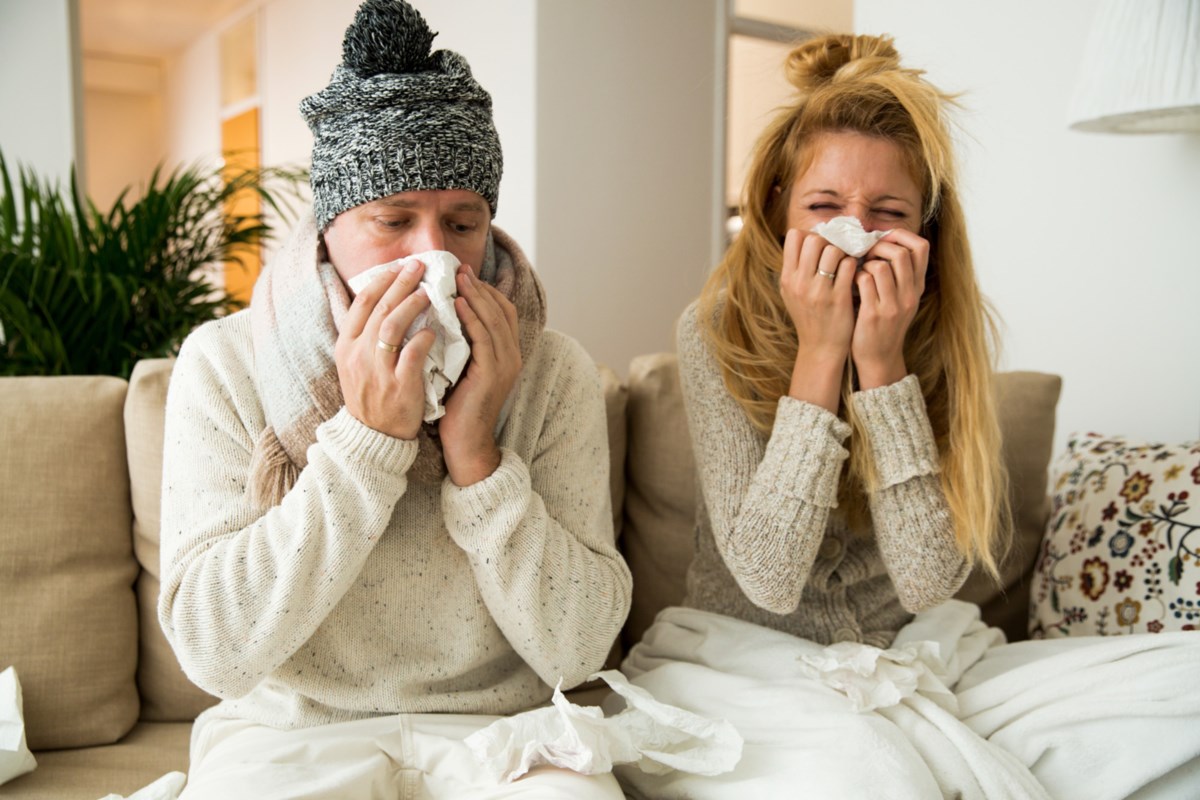Infection
Infectious disease experts warn of multiple viruses this flu season
Infectious disease experts at UCHealth are encouraging residents to stay up to date on their flu shots ahead of the upcoming virus season this fall and winter. COVID-19 and respiratory syncytial virus (RSV) are expected to be circulating at the same time.
Flu season typically peaks in December going into the holiday season, and lasts until about April. This year, flu season is expected to start circulating in October and possibly peak in November.
Coloradans are encouraged to stay home if they feel sick, practice proper hand hygiene, use sanitizer and wash surfaces thoroughly. Anyone who has a weakened immune system should wear a mask in large gatherings.
“We know that vaccines work, and we have repeatedly seen this in recent years. Even if a vaccine doesn’t completely prevent you from getting sick, it will reduce the severity of the illness and reduce the chance that you could end up in the hospital,” said Dr. Michelle Barron, senior medical director of infection prevention and control at UCHealth. “Staying healthy should be a priority for everyone, and getting a flu vaccine, COVID-19 vaccine, and an RSV vaccine (if you are eligible) is a great way to meet that goal.”
New COVID-19 vaccine available
Colorado has began to see a rise in COVID-19 cases and hospitalizations, due to waning immunity and a new strain of the virus. A new monovalent COVID-19 vaccine is set to become available by the end of September. This new vaccine focuses on the XBB.1.5 Omicron variant. In addition to the flu shot, Coloradans are encouraged to get this vaccine as soon as it becomes available. This is pertinent for those who are over the age of 65, individuals with underlying health conditions, and those who are immunocompromised.
Although it is safe to get the flu vaccine and the new COVID-19 vaccine together, Coloradans are encouraged to get each as soon as they become available — which could mean getting the flu shot first and then the COVID-19 shot a few weeks later.
COVID-19 symptoms can look similar to that of the flu: headache, runny nose, body aches, fever, cough and a sore throat. If someone is symptomatic, it is important to still get tested to determine what virus you have and what treatment options are best. For COVID, medications like Paxlovid and Remdesivir are still available and have been proven to be effective in lowering the risk of severe infection. Monoclonal antibodies are no longer considered effective in the treatment for COVID-19.
Protection against RSV
The FDA has recently approved a new vaccine to protect older adults and immunocompromised individuals against respiratory syncytial virus or RSV. This vaccine is specifically for those who are 60 or older and pregnant people.
“RSV is known to cause ‘croup’ in kids. In adults, it can cause bronchitis and pneumonia in individuals who are older or have underlying lung disease like asthma or COPD, or have compromised immune systems due to medications or underlying conditions,” said Dr. Barron.
To learn more about influenza prevention and care, visit the UCHealth website.

